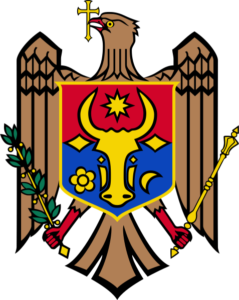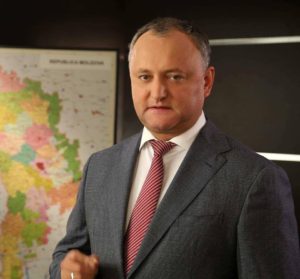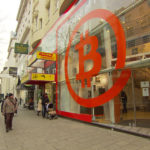Whilst the world was arduously discussing Western politics, elections were held in two of Romania’s neighboring countries, namely Bulgaria and Moldova. In the eve of Parliamentary elections, Romania witnesses gradual shifts in political orientation in Eastern Europe. Here is an informal overview on the political realities of the recent elections in two of Romania’s neighboring countries and their spheres of interests. This article was thought as a starting point and an invitation for more in-depth analysis and exploitation of the topic.
Bulgaria

Let’s meet the (former) ruling political party, GERB

GERB (EN: Citizens for European Development of Bulgaria, BG: Граждани за европейско развитие на България) is the center-right oriented party which gave the incumbent Prime Minister, Boyko Borisov. The endorsed candidate for the Presidential elections and the main opponent of newly elected Rumen Radev was Tsetska Tsacheva. It’s the second time this year we see a Bulgarian female candidate losing an important competition. Earlier this year, Bulgaria ran its bid for the Secretary General position in the UN, with two candidates: Kristalina Georgieva and Irina Bokova. Tsacheva entered second round elections with Radev. According to Gallup International exit polls, Radev won with 58.4% and will be the successor of President Rosen Plevneliev, the independent candidate backed up by GERB in the previous elections. Tsacheva losing the elections is understandable if we take into account the general discontent people had with the party she was endorsed by.

Earlier this month, Prime Minister Borisov vowed to resign if the candidate endorsed by his party will lose the elections. This would be the second time Borisov resigned from the Prime Minister position, following scandals back in 2013. He delivered as promised his resignation on 13th of November which as part of protocol, has to be discussed in the Parliament and accepted. “If Bulgarians want a political crisis, then they shall have one”, said Borisov referring to the following early elections which will probably be scheduled next spring. Borisov is one charismatic politician and he dominated Bulgarian political arena in the recent years because he was genuinely a people’s man. His portfolio include: football player, owning a security agency, karate player and policeman. However, he made his entrance in politics founding GERB in 2006 by addressing the need to fight corruption and seeking economic growth, but the process was very slow. The presidential turnout for the BSP can be understood as well as an anti-GERB vote.

Bulgarian Socialist Party traces its origins to pre-1990 politics. From the ashes of Communism, the party re-branded itself and became the BSP. This is not unheard of in Eastern Europe and Bulgaria is not the only country to have it. BSP endorsed 2 candidates who became presidents, Georgi Parvanov and Petar Stoyanov. In a similar fashion to Georgi Parvanov, the newly elect president also ran as an independent. He is not member of the BSP. The majority of the news articles about Rumen Radev focuses on the open pro-Russian orientation. He made it clear throughout his political campaign that seeking good relations with Moscow is beneficial to Bulgarian society. He is advocating for a meeting at the half of the bridge between Kremlin and Brussels. But even before Radev, Bulgaria had good overall relations with Russia, no territorial interests to collide and Russian businessmen were interested in Bulgaria. Unlike other Eastern European states, Bulgaria is not russophobe. But there is definitely more than its pro-Russian political speech that made Radev the newly elect President. Whilst Bulgaria is not a presidential republic and the president does not enjoy a lot of privileges, there is nonetheless power attached to the function, such as the power to invest a Cabinet and likewise to try to impeach a Prime Minister.

The message from my level of understanding is that the people were fed up with what the others were selling. They were so fed up with GERB that they decided to go with a former military (I think we can all agree that there is no such thing as former military; once in the Army you are always a soldier, it’s kind of like being a doctor). His message anti-immigrants/refugees, the economic plan as well as discontent, political disillusion and a low European Union identity feeling all rounded together and the majority cast the ballots accordingly.
Republic of Moldova

Trying to look on the bright side of the elections in Moldova, I am lowkey thinking soon enough President Igor Dodon will make Moldovan the official language of the country. Which we Romanians could totally take advantage of because we can list Moldovan on our resumes and boost our language proficiency. But on a serious note, Igor Dodon was expected to win the elections as it was seen in the results of the first electoral round. The results of the elections in Moldova were wide debated in Romanian media over the past days. There were people voting from Moldova and from outside the country as well. People from Transnistria voted in electoral posts close to the border, because Transnistrian authorities refusing to have electoral posts in Tiraspol or elsewhere. There were also people queuing at the embassies to vote. The whole situation seemed like a deja-vu for Romanians who went through similar moments back in 2014 when President Iohannis won the elections. It is still past my level of understanding why states holding elections do not print extra ballots to make such scenarios unlikely.

Igor Dodon ran for presidency in the Republic of Moldova as the endorsed candidate from PSRM (EN: Socialist Party of the Republic of Moldova, RO: Partidul Socialist al Republicii Moldova) and won with 52.11%* (according to alegeri.md) to his opponent, Harvard graduate Maia Sandu. His political campaign motto was “Moldova has a future”. On their first debate, Igor Dodon claimed: “The first visit I will make as a President will be in Russia, where I plan to address two main issues: re-establishing exports and the migrants situation. We must assure (migrants) normal working environments. Without the Russian market, the economy of Moldova cannot resist.” President Dodon addressed issues such as the need to preserve traditional values, the importance of family and economic growth. It is logical economic sense that Russia offers better alternatives for Moldovans than Romania does, but do you have to break our hearts like that? #sadface

Speaking about his foreign affairs orientations, Dodon said he is not anti-Romanian and he is encouraging, among others, teaching Moldovan children the right version of history. He is interested in the education field given his teaching activities as associate lecturer to three Moldovan universities: Economic Studies Academy of Moldova, International Liberal University of Moldova and State University of Moldova. He is an advocate of redrafting the History learning curriculum for lower education institutions so as to reflect Moldovan history with accuracy. He also spoke about changing the Moldovan flag to Blue and Red and perhaps the most vocal of his policies is scraping off the trade deal with the European Union back to 2014.

“There comes a difficult period for both Chisinau and Bucharest. The victory of Dodon will echo in Romania as well, for the electoral campaign has just started. On different notes, the impact of strategic reorientation of the Republic of Moldova will weigh on the incumbent administration, which invested great deal on Chisinau’s road to the European Union.” Speaking to the students of the Faculty of Political Science University of Bucharest and the National School of Political and Administrative Studies, President Iohannis commented, among others, on the political realities in Moldova. Romania’s efforts concentrated, claimed the President, more on investing in political figures than investing in political parties and this aspect has to be readdressed in the future.
We could argue nationalism is on the rise. We could also argue that the international relations are rearranging. Somewhere in states’ societies there are gaps. We should try to identify these gaps and grasp their meanings. This time Romania is watching from the distance. Back in 2000, we had Corneliu Vadim Tudor who almost won presidency with his extremist discourse. Nowadays PRM (EN: Great Romania Party, RO: Partidul România Mare) is not politically relevant anymore, but there are lessons to be learnt from both history and by looking abroad and understanding the shifts.
“We are walking on thin ice now and for the first time, we have to take decisions relying solely on ourselves and this is but a frightening thought. Romania is now given the chance to be the peninsula of stability of the West in an East where Putin becomes more and more powerful and de-stabilizing.
(…)
In less than a month, Romania will make its own choices. We’ll then know exactly how many stands with the East and how many with the rest.”
Sources:
http://www.gallup-international.bg/en/Publications/2016/337-Exit-poll-by-Gallup-International-Balkan-indicates-voter-turnout-at-8-pm
http://www.bloomberg.com/news/articles/2016-11-13/bulgaria-s-radev-wins-presidential-election-exit-poll-shows
http://www.telegraph.co.uk/news/2016/11/14/pro-russian-candidates-win-presidential-votes-in-bulgaria-and-mo/
http://www.novinite.com/articles/177393/Socialist-Backed+Candidate+Wins+Bulgaria’s+Presidential+Election+-+Exit+Poll
http://www.reuters.com/article/us-bulgaria-election-government-idUSKBN1390WE?il=0
http://www.expats.bg/wikis/8/GERB-%EF%BF%BDCitizens-for-European-Development-of-Bulgaria%EF%BF%BD
http://stirileprotv.ro/stiri/international/portret-cine-e-igor-dodon-noul-presedinte-al-republicii-moldova-romanii-sunt-prietenii-nostri-dar-fiecare-la-casa-lui.html
http://www.digi24.ro/stiri/externe/moldova/alegeri-moldova-2016/video-alegeri-moldova-presedinte-rezultate-vot-611436
http://www.evz.ro/igor-dodon-presedinte-la-chisinau-se-instaleaza-romanofobia-izo.html
http://www.gandul.info/international/alegeri-in-republica-moldova-prorusul-igor-dodon-castiga-prezidentialele-in-fata-proeuropenei-maia-sandu-15951708
http://www.alegeri.md/
https://republica.ro/cat-mai-rezista-romania-cati-sunt-cu-estul-si-cati-suntem-restul
The pictures are taken from Facebook pages linked with the politicians
The coats of arms and parties logos are taken from Wikipedia.com










Pingback : Women and politics in 2016 - The Political Science Club